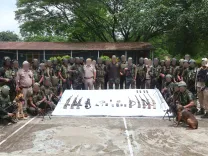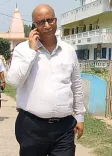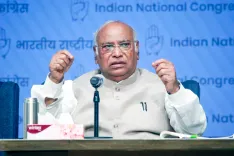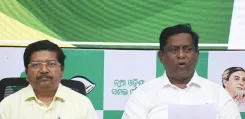Should We Remember the 'Black Days of Emergency'?
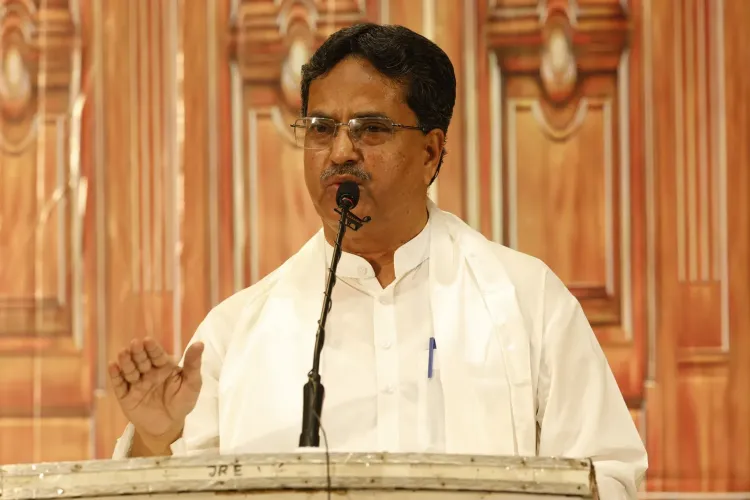
Synopsis
Key Takeaways
- Emergency Declaration: A significant event in 1975 that challenged Indian democracy.
- Human Rights Violations: Numerous abuses occurred during this period, highlighting the importance of civil liberties.
- Political Activism: The Emergency led to increased political awareness and activism among citizens.
- Constitutional Safeguards: Emphasizing the need to protect constitutional rights in modern governance.
- Education on History: Importance of educating future generations about past mistakes.
Agartala, June 30 (NationPress) Tripura Chief Minister Manik Saha criticized the Congress government for its declaration of Emergency in 1975, describing it as a severe violation of the Indian Constitution and a blow to democracy. During a speech at the Mock Parliament organized by the BJP Mahila Morcha at Muktadhara Auditorium, Saha emphasized that the Emergency period from 1975 to 1977 represents a dark chapter in India’s history, offering participants a chance to reflect on this critical event.
“Many have forgotten these painful days, but we must remember them,” he stated, recalling that in 1975, former Prime Minister Indira Gandhi imposed the Emergency.
“Indira contested the election from Rae Bareli, Uttar Pradesh, in 1971 and won. However, her closest rival, Raj Narain, contested the result in the Allahabad High Court, claiming electoral malfeasance with government assistance. This led Justice Jagmohan Lal Sinha to nullify the election on June 12, 1972,” Saha explained.
He noted that Indira Gandhi appealed to the Supreme Court, where Justice Krishna Iyer ruled that she could continue as Prime Minister but could not vote or hold any government position. Following discussions with the then Chief Minister of West Bengal, Siddhartha Shankar Ray, pressure was exerted on President Fakhruddin Ali Ahmed, resulting in the declaration of the Emergency in 1975, a day marked as one of shame,” Saha clarified.
He stated that the Mock Parliament aimed to educate the younger generation about this dark time and to encourage discussions on it. Saha claimed that the Emergency was a blatant attack on the Indian Constitution, illustrating how democracy was suppressed during the Congress rule. In Tripura, the government led by Sukhamoy Sengupta misused the Maintenance of Internal Security Act (MISA) to unlawfully imprison many, including journalists.
“The atmosphere was one of terror, with many homes vandalized and dissenters arrested, even the press faced aggression. Today, we are witnessing true development under Prime Minister Narendra Modi, who is dedicated to upholding the Constitution,” he added.
Saha mentioned that the abrogation of Article 370 by the Modi administration was a step toward safeguarding the Constitution.
Attendees at the event included BJP state President Rajib Bhattacharjee, Transport Minister Sushanta Chowdhury, BJP general secretary Bhagaban Das, and BJP Mahila Morcha president Mimi Majumder.

